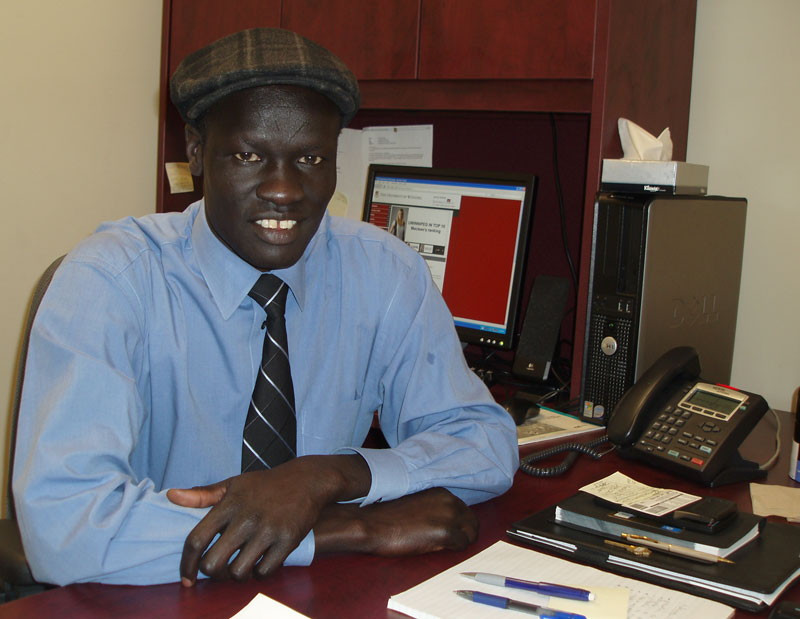Power to all the people, even the newbies
New Canadians aren’t sufficiently represented in politics, say community members
Despite shaping Canada’s history, immigrants have a limited voice in Canadian politics, and instead are represented through local ethnic community organizations.
David Atem is the immigrant access adviser at the Global Welcome Centre. A Sudanese immigrant, Atem made it his mission to help other immigrants from Africa integrate into Canadian culture.
He believes his community lacks the kind of representation in Canada that it deserves.
“We have accepted that we are part of Manitoba, but to be fully part of the province we need representation,” he said.
According to Atem, government pays little attention to the issues of immigrants who have just arrived in Canada. He would like Manitoba to recognize the educational barriers that stand in the way of immigrants coming from a completely different culture.
An improved education curriculum for new Canadians would help the African community present their issues to politicians, Atem said.
The financial situation of immigrants can also act as a barrier.
“Economically they [new immigrants] are very marginalized,” said Terri Proulx.
Proulx is the ethno communities project co-ordinator for Supporting Employment and Economic Development, an ant-poverty NGO in Winnipeg. She also pointed to the education system as limiting new immigrants’ ability to defend their rights because the education in many countries is significantly worse than Canada’s.
Representation in Canadian culture could be improved, said Proulx, if immigrants could help new Canadians adapt to Canadian culture.
“It would be nice to see representation in [the department of] Labour and Immigration of people that have gone through the system.”
Although political representation does remain elusive, many immigrant groups have organized associations in Manitoba that are specifically geared towards helping new arrivals find their way around a new country and a new culture.
Marilou McPhedran, principal of the Global College at the University of Winnipeg, said these organizations are critical for helping immigrants get what they need when they aren’t sure who to turn to.
“Without their representation you don’t have the resources to bring about change for that community,” she said.
Atem is a member of the Sudanese Association of Manitoba (SAM), one of 27 different groups operating within the broader organization called African Communities of Manitoba Inc.
This group helps connect African communities and empower people by maintaining their heritage here in Canada. It also allows groups to present a unified voice.
“If [SAM] weren’t here it would be a disaster, people would not have their language; their culture,” he said.
These associations help connect immigrants who have been in Canada for a long time with new immigrants who are just getting their bearings.
“They will be able to address all the challenges that face the community,” he said.
Atem believes the process to improved representation for any immigrant community must include preserving their original culture. Yet accessible and specialized education for immigrant children can also help advance integration into Canadian culture.
“I need to see something started up now that will be passed on to the next generation,” he said.
And he may be on to something. As generations move by, new Canadians become more familiar with the system and gain representation in the country.
McPhedran pointed to Winnipeg’s large Filipino Canadian community, which will be celebrating its 50th year in Canada in 2010. She said they are now beginning to have members of their community elected to governmental positions, such as Point Douglas city councillor Mike Pagtakhan.
“It takes a lot of time to reach political representation in government,” she said, adding the tenacity of these communities will eventually help them penetrate the system.
Published in Volume 63, Number 19 of The Uniter (February 5, 2009)







